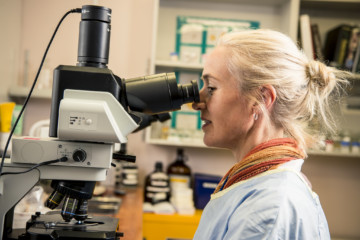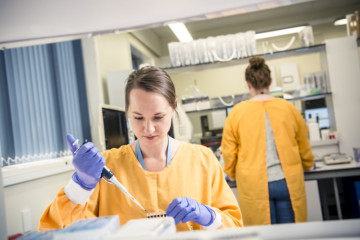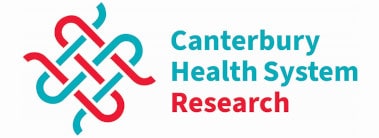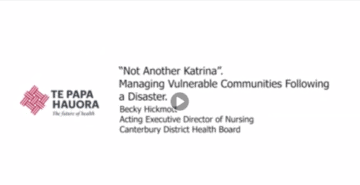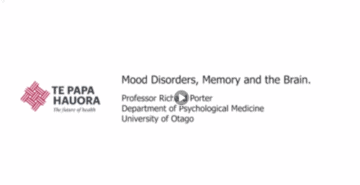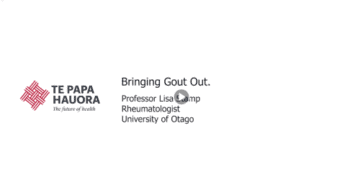|
Funding Body
|
Funding Opportunity
|
Due Date
|
|
MedTech CMDT
|
Research Acceleration Programme (for Stage I)
- for very early-stage medical device and digital health technology projects
- supports the formation of new collaborative relationships
|
Anytime
Proposal is assessed every two months
|
|
Alexander von Humboldt Foundation
|
Humboldt Research Award
- €60,000 award money
- research stay of up to 12 months in Germany possible
|
Anytime
|
|
New Zealand Multiple Sclerosis Research Trust
|
Grant
|
Anytime
|
|
Neurological Foundation
|
Travel Grants
- support neurologists who wish to travel overseas to specialise in the treatment of people with multiple sclerosis.
|
Anytime
|
|
Rule Foundation
|
Research Grants
- advance the health, wellbeing and visibility of lesbian, gay, bisexual, transgender and intersex (LGBTI) New Zealanders
|
Anytime
|
|
Canterbury Medical Research Foundation
|
Don Beaven Travel Grant
Special Funding Grant
Summer Studentships
|
Anytime
|
|
French Embassy in NZ
|
French Embassy in NZ Mobility Grants
|
Anytime
|
|
NZ Lottery Grants Board
|
Lottery Minister's Discretionary Fund
|
Anytime
|
|
Diabetes New Zealand Research Foundation
|
Monitoring Equipment Fund
|
Anytime
|
|
The Association of Commonwealth Universities
|
Various Scholarships and Grants
|
Vary as per each scholarship and grant
|
|
New Zealand Nurses Association
|
Various Scholarships and Grants
|
Vary as per each scholarship and grant
|
|
The Royal Australian and New Zealand College of Psychiatrists
|
Various Scholarships and Grants
|
Vary as per each scholarship and grant
|
|
Crohn's & Colitis Foundation
|
Various Scholarships and Grants
|
Vary as per each scholarship and grant
|
|
Royal National Institute for Deaf People
|
Various Scholarships and Grants
|
Vary as per each scholarship and grant
|
|
Royal Australasian College of Physicians
|
Various Scholarships and Grants
|
Vary as per each scholarship and grant
|
|
Royal Australian and New Zealand College of Obstetricians and Gynaecologists
|
Various Scholarships and Grants
|
Vary as per each scholarship and grant
|
|
New Zealand Society of Gastroenterology
|
Small Research Grants
|
31 Jan 2024
|
|
Cancer Society
|
Post-Doctoral Fellowships (EoI)
|
7 Feb 2024
|
|
Royal Society
|
Marsden Fund EoI
|
20 Feb 2024
|
|
Leukaemia and Blood Cancer NZ
|
Travel Grant
|
23 Feb 2024
|
|
Arthritis New Zealand
|
External Research Grants (EoI)
|
29 Feb 2024
|
|
Cancer Research Trust
|
Cancer Education Development Fund
Professional Development Award Round 1 for travel
|
1 Mar 2024
|
|
Maurice and Phyllis Paykel Trust
|
Project & Equipment Grants
Travel grants
Conference Support Grants
|
1 Mar 2024
|
|
L'Oreal Australia and New Zealand
|
L'Oreal-UNESCO for Women in Science Fellowship
- support outstanding early career female scientists
|
3 Mar 2024
|
|
MedTech CMDT
|
Research Acceleration Programme (for Stage II)
- for very early-stage medical device and digital health technology projects
- identify concepts with the potential to be viable for clinical application and commercialisation.
|
4 Mar 2024
|
|
Royal Australian and New Zealand College of Obstetricians and Gynaecologists
|
Mercia Barnes Trust Research Grants
- research fellowships in women’s and reproductive health up to a value of $35,000 each
|
tba
|
|
Health Research Council
|
Health Delivery Research Project Grant (Registration)
Health Delivery Research Activation Grant 1 (Registration)
Health Delivery Research Career Development Award 1 (Registration)
|
13 Mar 2024
|
|
Royal National Institute for Deaf People
|
Discovery Research Grant
|
25 Mar 2024
|
|
Canterbury Medical Research Foundation
|
Emerging Researcher Fellowship
Major Project Grants (EoI)
|
28 Mar 2024
|
|
New Zealand Society for the Study of Diabetes
|
NZSSD Emerging Researcher
Pharmaco-i.SENS Award
|
28 Mar 2024
|
|
Canterbury Medical Research Foundation
|
Grant in Aid
|
31 Mar 2024
|
|
Royal Society
|
Charles Fleming Senior Scientist Award
Charles Fleming Publishing Award
|
31 Mar 2024
|
|
Worldwide Cancer Research
|
Research Grant
|
31 Mar 2024
|
|
Brian Mason Scientific & Technical Trust
|
Project Grant
|
31 Mar 2024
|
|
Fulbright NZ
|
Fulbright Specialist Awards
|
1 Apr 2024
|
|
Neurological Foundation
|
Project Grants
Small Project Grants
Conference and Training Course Grants
Catwalk Trust Translational Award
|
1 Apr 2024
|
|
Australian and New Zealand College of Anaesthetists
|
Academic Enhancement Grant
Project Grants
Professional Practice Research Grants
Environment and Sustainability Research Grant
ANZCA Patrons Emerging Investigator Grant
Novice Investigator Grant
Skantha Vallipuram ANZCA Research Scholarship
|
2 Apr 2024
|
|
New Zealand Pharmacy Education and Research Foundation
|
Projects
Summer Studentships
|
10 Apr 2024
|
|
Cancer Society
|
PhD Scholarship
|
12 Apr 2024
|
|
Royal Society
|
Catalyst Leaders
Catalyst Seeding
|
18 Apr 2024
|
|
L'Oreal Australia and New Zealand
|
L'Oreal-UNESCO for Women in Science PhD Mentoring Scheme
|
19 Apr 2024
|
|
Royal Society
|
Rutherford Discovery Fellowships
|
tba
|
|
Heart Foundation
|
A. H. Couch Trust Heart Foundation Scholarship
Māori Fellowships
Nurse Practitioner and Training Fellowships in Cardiovascular Disease
Overseas Training & Research Fellowships
Pacific Research Fellowships
Postgraduate Scholarships
Project Grants
Research Fellowships
Senior Fellowships
Small Project Grants
Grants-In-Aid
|
30 Apr 2024
|
|
New Zealand Dental Research Foundation
|
Research Foundation Grants
Ministry of Health Research Grants
|
30 Apr 2024
|
|
Neurological Foundation
|
VJ Chapman Fellowship
- support medical graduates to pursue a career in academic neurology, neurosurgery, or neuropathology
O’Brien Clinical Fellowship
- support non-medical health professionals to pursue a career in clinical research
Philip Wrightson Fellowships
- support post-doctoral research fellows
Senior Clinical Research Fellowships
Senior Research Fellowships
- support post-doctoral research fellows
First Fellowships
- support early career researchers
Neurology Postgraduate Scholarship
|
1 May 2024
|
|
Health Research Council
|
Ngā Kanohi Kitea Community Advancement Grants
|
8 May 2024
|
|
Health Research Council
|
NZ-China Biomedical Research Alliance (Registrations)
|
tba
|
|
Head and Neck Cancer Foundation Aotearoa
|
Research Grants
|
tba
|
|
Australian and New Zealand Intensive Care Foundation
|
Research Project Grants (EoI)
Education Project Grants (EoI)
|
30 Apr 2024
|
|
Capstone Editing
|
Capstone Editing Grant for Mid-Career Researchers
|
31 May 2024
|
|
Maurice and Phyllis Paykel Trust
|
Project & Equipment Grants
Travel Grants
Conference Support Grants
|
1 Jun 2024
|
|
Royal Society
|
Falling Walls Lab
- open to students and early-career professionals within all disciplines from New Zealand and Pacific Island Forum nations.
- the winner of Falling Walls Lab New Zealand will be invited to represent New Zealand at the Falling Walls Lab Global Finale in Berlin.
|
1 Jun 2024
|
|
Graci Foundation
(for research in gynaecological cancer)
|
Gynaelogical Cancer Research Grant
Ovarian Cancer Research Grant
Low-grade Serous Ovarian Cancer Research Grant
|
tba
|
|
Capstone Editing
|
Early Career Academic Research Grant for Women
|
24 Jun 2024
|
|
ACC
|
Innovation Fund (Registration of Interest)
- support innovation in the health sector
- up to $100,000 for one-off grants
|
tba
|
|
Leukaemia and Blood Cancer NZ
|
National research grant
Travel and conference grants
|
30 Jun 2024
|
|
The Royal Australian and New Zealand College of Obstetricians and Gynaecologists
|
Mary Elizabeth Courier Research Scholarship
- for research into cancer amongst women; specifically, cancer of the cervix and/or uterus
|
30 Jun 2024
|
|
Prostate Cancer Foundation of New Zealand
|
Research Grants
|
30 Jun 2024
|
|
MedTech CMDT
|
Research Acceleration Programme (for Stage II)
- for very early-stage medical device and digital health technology projects
- identify concepts with the potential to be viable for clinical application and commercialisation.
|
1 Jul 2024
|
|
Health Research Council
|
Clinical Practitioner Research Fellowship (Registrations)
Foxley Fellowship (Registrations)
Sir Charles Hercus Health Research Fellowship (Registrations)
|
tba
|
|
Health Research Council
|
Project (Registrations)
|
tba
|
|
Ovarian Cancer Research Foundation
|
Grants Scheme
|
tba
|
|
Royal Society of New Zealand
|
Catalyst Fund: Seeding
Catalyst: Leaders
|
tba |
|
Health Research Council
|
Māori Health Research Knowledge Translation Grants (Registrations)
Māori Health Research Masters Scholarships (Registrations)
Māori Health Research PhD Scholarships (Registrations)
Māori Health Research Summer Studentships (Registrations)
Māori Health Research Postdoctoral Fellowships (Registrations)
Māori Rangahau Hauora Training Grant (Registrations
Pacific Clinical Research Training Fellowship (Registrations)
Māori Health Research Development Grants (Registrations)
Pacific Health Research Masters Scholarship (Registrations)
Pacific Health Research PhD Scholarships (Registrations)
Pacific Health Research Postdoctoral Fellowship (Registrations)
Pacific Health Research Summer Studentships (Registrations)
Pacific Health Research Knowledge Translation Grants (Registrations)
Sir Thomas Davis Te Patu Kite Rangi Ariki Health Research Fellowship (Registrations)
|
tba
|
|
Cerebral Palsy Alliance
|
Emerging Researcher Grant (EOI)
|
tba
|
|
New Zealand Orthopaedic Association
|
Wishbone Orthopaedic Research Foundation Grants
|
tba
|
|
New Zealand Society for Oncology
|
Roche Translational Cancer Research Fellowship
|
tba
|
|
Vic Davis Memorial Trust
(for research in mental health)
|
Research Grants and Scholarships
|
31 Jul 2024
|
|
New Zealand Society of Gastroenterology
|
Small Research Grants
|
31 Jul 2024
|
|
Australian and New Zealand Intensive Care Foundation
|
Personal Development Scholarships for Clinician Educators
|
31 Jul 2024
|
|
Fulbright NZ
|
Fulbright New Zealand General Graduate Awards
Fulbright New Zealand Science & Innovation Graduate Awards
Fulbright-Ngā Pae o Te Māramatanga Graduate Award
Fulbright Specialist Awards
|
1 Aug 2024
|
|
Health Research Council
|
Health Delivery Research Career Development Award 2 (Registrations)
Health Delivery Research Activation Grant 2 (Registrations)
|
2 Aug 2024
|
|
Royal Society
|
Rutherford Foundation Postdoctoral Fellowship
|
tba
|
|
Arthritis New Zealand
|
Summer Scholarships
|
tba
|
|
Cure Kids
|
Project Grants
|
tba
|
|
Health Research Council
|
Ethics Summer Studentships
|
tba
|
|
New Horizons for Women Trust
|
Research Awards
|
23 Aug 2024
|
|
Lottery Health Research
|
Translational Research Projects
Shared Research Equipment
Post-doctoral Fellowships
PhD Scholarships
|
30 Aug 2024
|
|
Cerebral Palsy Alliance
|
PhD Research Grant
|
tba
|
|
Royal Society
|
The Sir Hugh Kawharu Masters Scholarship for Innovation in Science
|
tba
|
|
Cancer Research Institute
|
Postdoctoral Fellowship
|
1 Sep 2024
|
|
Neurological Foundation
|
Project Grants
Small Project Grants
Conference and Training Course Grants
Summer Studentships
CatWalk Trust Project Grant
|
1 Sep 2024
|
|
Cancer Research Trust
|
Professional Development Awards Round 2 for travel
Cancer Education Development Fund
Postgraduate Scholarship
John Gavin Postdoctoral Fellowship
|
20 Sep 2024
|
|
Prime Minister’s Science Prizes Secretariat
|
Prime Minister’s Science Communication Prize
Prime Minister’s Science Prize
Prime Minister’s MacDiarmid Emerging Scientist Prize
|
30 Sep 2024
|
|
MQ Mental Health Research
|
Transdisciplinary Research Grants (EOI)
|
tba
|
|
Physiotherapy New Zealand
|
The Scholarship Trust Fund
|
tba
|
|
Oakley Mental Health Research Foundation
|
Research Grant
|
tba
|
|
Cancer Society
|
Maori Cancer Researcher Awards
|
tba
|
|
Gut Cancer Foundation
|
Research Funding
|
tba
|
|
Breast Cancer Foundation of New Zealand
|
Fellowships
|
tba
|
|
New Zealand Society of Gastroenterology
|
NZSG Janssen Research Fellowship
- promote research in gastroenterology in New Zealand
- encourage gastroenterology trainees to participate in research
|
tba
|
|
Canterbury Medical Research Foundation
|
Travel Grant
|
30 Sep 2024
|
|
Maurice and Phyllis Paykel Trust
|
Research & Equipment Grants
Travel Grants
Conference Support Grants
|
1 Oct 2024
|
|
Neurological Foundation
|
VJ Chapman Fellowship
- support medical graduates to pursue a career in academic neurology, neurosurgery, or neuropathology
First Fellowship
- support early career researchers
Doctoral Scholarships
CatWalk Trust Doctoral Scholarship
CatWalk Trust Postdoctoral Fellowship
Neurology Postgraduate Scholarship
|
1 Oct 2024
|
|
MedTech CMDT
|
Research Acceleration Programme (for Stage II)
- for very early-stage medical device and digital health technology projects
- identify concepts with the potential to be viable for clinical application and commercialisation.
|
7 Oct 2024
|
|
Health Research Council
|
Emerging Researcher First Grants (Registrations)
|
tba
|
|
New Zealand Pharmacy Education and Research Foundation
|
Projects
Summer Studentships
|
10 Oct 2024
|
|
Ministry of Business, Innovation and Employment
|
Te Pūnaha Hihiko: Vision Mātauranga Capability Fund
|
tba
|
|
Cancer Society
|
Maori Cancer Researcher Awards
|
11 Oct 2024
|
|
Health Research Council
|
Programmes (Registrations)
|
tba
|
|
Royal Society of New Zealand
|
Catalyst Fund: Seeding
Catalyst: Leaders
|
tba
|
|
Royal Society of New Zealand
|
Ngā Puanga Pūtaiao Fellowships
|
tba
|
|
The Commonwealth Fund
|
Harkness Fellowships in Health Care Policy and Practice
|
tba
|
|
Ministry of Business, Innovation & Employment
|
Endeavour Fund - Smart Ideas (Registrations)
|
tba
|
|
Muscular Dystrophy New Zealand
|
Grants Funding
|
tba
|
|
Health Research Council
|
Explorer Grants (Registrations)
|
tba
|
|
Cancer Research Trust
|
Murray Jackson Clinical Fellowship (Medical)
Clinical Fellowship for Cancer Nurses
|
tba
|
|
Ministry of Business, Innovation and Employment
|
Endeavour Fund – Research Programme (Registrations)
|
tba
|


